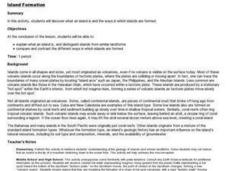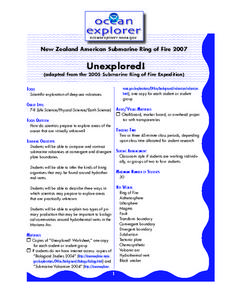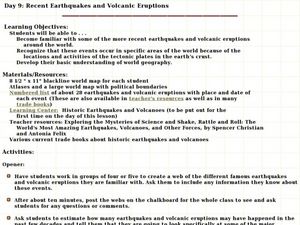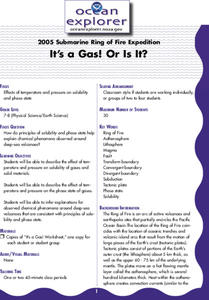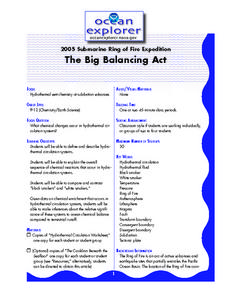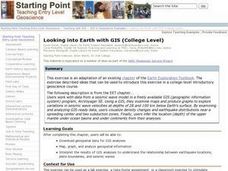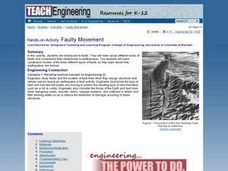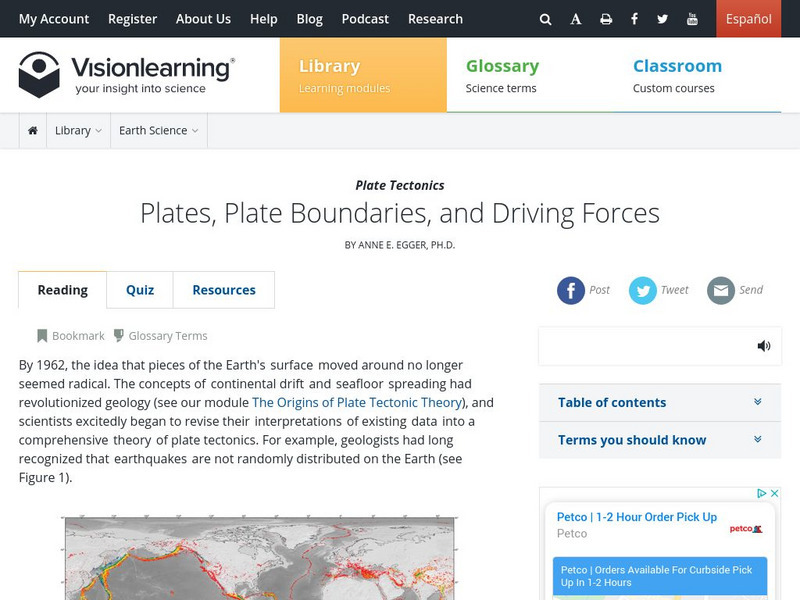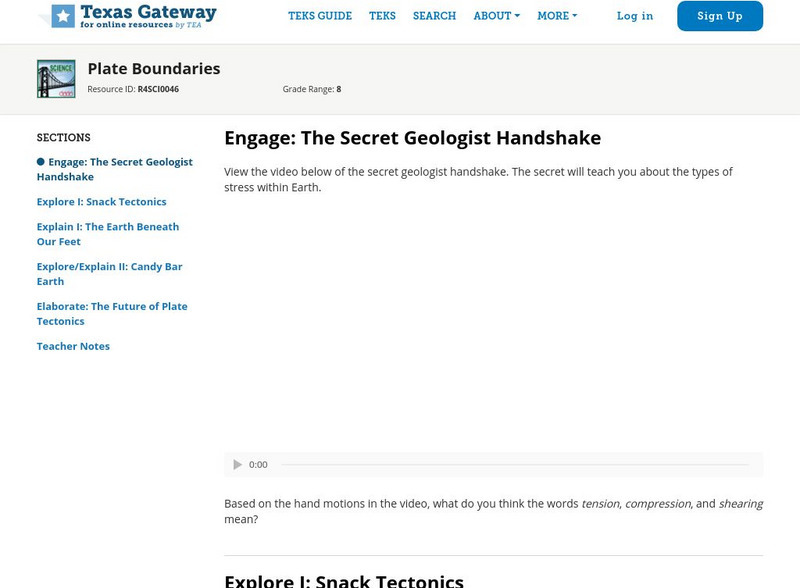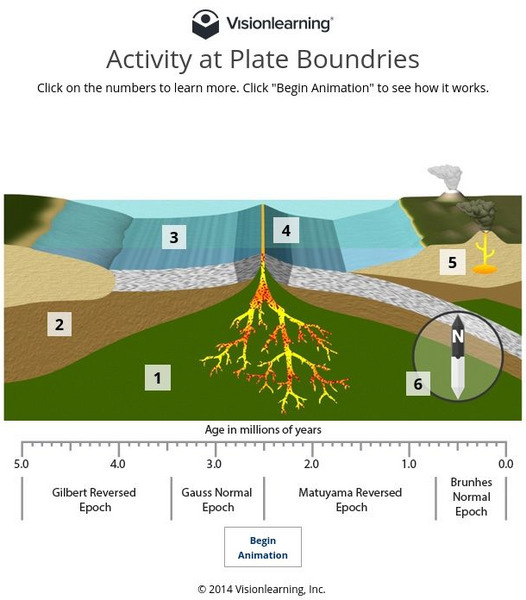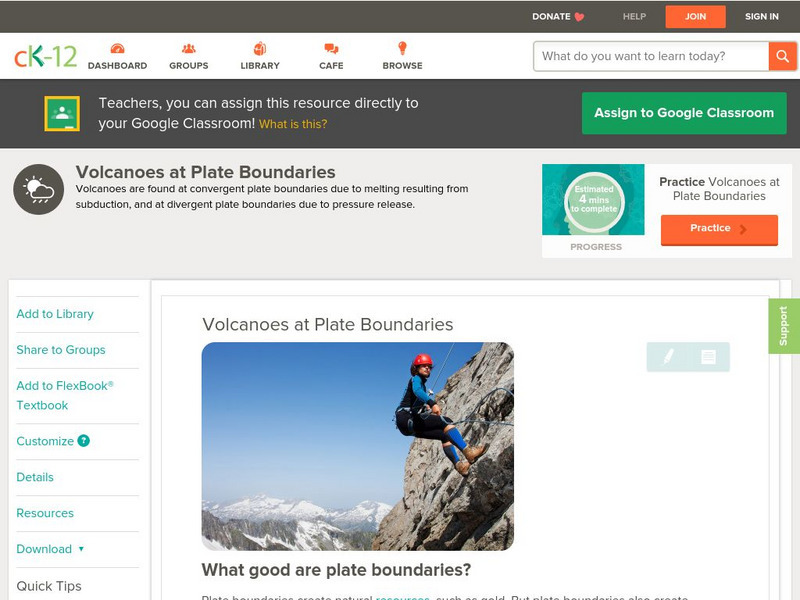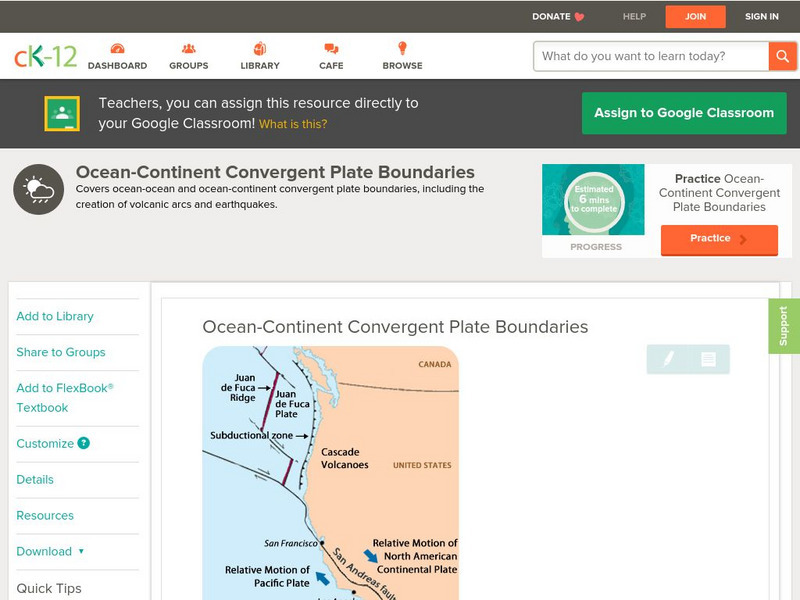Curated OER
Where There's Smoke......
Young scholars use fundamental relationships between melting points, boiling points, solubility, temperature and pressure to develop explanations. In this chemistry instructional activity students complete an activity.
Curated OER
My Friend, The Volcano
Students describe the positive impacts of volcanic activity on marine ecosystems. In this volcano lesson students explore the process that causes volcanic activity along the Mariana and Kermadec Island Arcs.
Curated OER
2005 Submarine Ring of Fire Expedition: What's for Dinner?
Young scholars compare and contrast photosynthesis and chemosynthesis as sources of primary production for biological communities, and describe sources of primary production observed in biological communities associated with volcanoes of...
Curated OER
It's a Gas! Or is it?
Young scholars describe the effects of temperature and pressure on solubility of gases and other materials. In this investigative lesson students read an article and answer questions about it.
Curated OER
Island formation
Students explain what an island is, and distinguish islands from similar landforms. They compare and contrast the different ways in which islands are formed.
Curated OER
Earthquakes
Students observe the melting of ice. In this phase change lesson, students observe ice as it melts. They discuss the process and create a Venn diagram comparing water and ice.
Curated OER
Unexplored!
Students explore volcanoes. In this deep sea volcano activity students complete a worksheet and various activities.
Curated OER
How Volcanoes Grow
Learners study volcanoes including rock fragments, ash, aerosols and gases. In this volcano instructional activity students divide into groups and build models of the three major types of volcanoes.
Curated OER
Bank on it! Worksheet
In this sentence completion activity, students fill in the blanks to a paragraph about a tsunami with words in a word bank. Students fill in 20 words.
Curated OER
Recent Earthquakes and Volcanic Eruptions
Students study the recent earthquakes and volcanic eruptions. In this recent earthquakes activity students complete an activity while working in groups.
Curated OER
Feeling Hot, Hot, Hot!
Students study the different types of volcanoes and how they erupt. In this volcano lesson plan students identify where volcanoes are most prevalent and options for predicting eruptions.
Curated OER
It's a Gas! Or is it?
Students discover the principles of solubility and phase state and their influence on chemical phenomena observed around deep-sea volcanoes. They describe the effect of temperature and pressure on solubility of gasses and solid materials.
Curated OER
The Big Balancing Act
Students describe chemical changes occurring in hydrothermal circulation systems. They make inferences about the significance of these systems to ocean chemical balance compared to terrestrial runoff.
Curated OER
Looking into Earth with GIS
Students work with data from a seismic wave model in a freely available GIS (geographic information system) program, ArcVoyager SE. Using a GIS, they examine maps and produce graphs to explore variations in seismic wave velocities at...
Curated OER
Faulty Movement
Students discover the faults throughout the Earth. They describe the different types of faults and how they are related to earthquakes. They build models of the faults.
Curated OER
Reading the Shapes of Volcanoes on Earth and Mars
Learners compare and contrast the volcanoes of Earth and Mars, and examine specific volcanoes on Mars. They model the processes that create cone and shield volcanoes, and measure the slope angles of cone and shield volcanoes.
Vision Learning
Visionlearning: Earth Science: Plate Tectonics Ii: Plate Boundaries and Forces
Instructional module focusing on plate tectonics. Discussion includes plates, plate boundaries, and driving forces. Site also includes an interactive practice quiz and links relating to the topic.
PBS
Pbs Learning Media: Tectonic Plates and Plate Boundaries
This interactive activity adapted from NASA features world maps that identify different sections of the Earth's crust called tectonic plates. The locations of different types of plate boundaries are also identified, including convergent,...
Texas Education Agency
Texas Gateway: Plate Boundaries
Find out about what happens at plate boundaries.
Vision Learning
Visionlearning: Activity at Plate Boundaries
A simulation that demonstrates divergent plate boundaries and seafloor spreading. A focus is on evidence of the Earth's normal and reversed polarity over geologic time in the rock record.
CK-12 Foundation
Ck 12: Earth Science: Earth's Tectonic Plates Study Guide
This comprehensive study guide covers the main terms and concepts needed for an earth science unit on the earth's tectonic plates. Review questions are included at the bottom of the study guide.
Science Struck
Science Struck: The Divergent Plate Boundary Explained With a Diagram
Explains what tectonic plates are, what a divergent plate boundary is and some facts about them, and gives examples of divergent plate boundaries.
CK-12 Foundation
Ck 12: Earth Science: Volcanoes at Plate Boundaries
[Free Registration/Login may be required to access all resource tools.] Volcanoes most often occur at plate boundaries.
CK-12 Foundation
Ck 12: Earth Science: Ocean Continent Convergent Plate Boundaries
[Free Registration/Login may be required to access all resource tools.] Covers convergent plate boundaries where an oceanic plate meets a continental plate.






